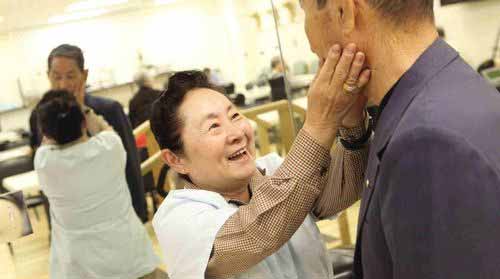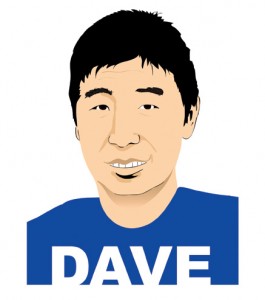by Jang Yeol of the Korea Daily
translated by Aruna Lee of New America Media
LOS ANGELES — Hyo-ju Han’s morning begins everyday at 6 a.m., when she rises out of bed and gets her husband, who has Alzheimer’s disease, ready for the day ahead. With the help of a nearby adult day care center, Han says she’s been able to manage, but pending state budget cuts threaten to end this vital source of care for her and many others.
Han’s husband was diagnosed with the mind-stealing disease two years ago, and she says the illness has advanced to the point at which he often cannot recognize family members and is thrown off by his surroundings.
“He’ll wake up and ask ‘Where am I?’ or ‘Who are you?’” says Han, age 70, adding that she’s increasingly losing sleep due to his “wandering off in the middle of the night.”
[ad#graphic-square]
The couple’s children, moreover, live far enough away that visits are rare, making Han her husband’s primary caregiver.
In April she discovered the Western Adult Day Health Care Center, located near their Los Angeles home. Since then they have been making daily visits to the center, where Han says her husband receives much needed care and she gets a much needed break.
“It’s the highlight of our day,” says Han, who notes that it sometimes takes up to a half hour just to get her husband dressed in the morning. But it’s worth it, she says, to get to the center.
In addition to serving a healthy breakfast of porridge, fruits and milk, Han says staff at the center also sit with her husband and read the daily papers to him, or they gather with other seniors to watch the local news or do group exercises.
Since coming to the center, Han says she has seen a “steady improvement” in her husband’s condition. In a rare moment of lucidity, he turned to her and said, “Honey, thank you for sticking by me.” She nearly broke down in tears, she recalls.
The center also allows Han a brief respite from the rigors of caring for her ailing spouse. “Using the center’s services gives me a few hours to just take a breath,” she says.
But because of state budget cuts, most of California’s over 300 adult day health care centers are expected to see major reductions in service or close by the end of November. For Han and her husband, that means an end to free daycare service.
In July, California Governor Jerry Brown vetoed AB 96, which would have extended funding for MediCal (the state’s Medicaid program) to the centers. As a result, notes the California Association for Adult Day Services, about 95 percent of these facilities will close before the end of the year.
The advocacy group Disability Rights California has filed suit in federal court to try to halt the elimination of MediCal financing for the centers.
Statistics show the closures will impact about 38,000 of California seniors, among them some 3,000 Koreans.
Han, who relies on a monthly Supplemental Security Income check of only $1,400, provided to very low-income people, says she can’t afford the $70 per day that she would have to pay once the changes go into effect, much less the cost of moving her husband into a nursing home.
“At a certain age, there are things people come to need help with from others,” says Han, such as the free translation services provided by Western Adult Day Health Care Center.
“I’m the only one who can take care of my husband,” she says. “But there are over 200 seniors at our day care center, and many of them are alone.”
Referring to Brown’s decision, she says she interprets it to mean the state “would prefer it that seniors die sooner.”
This article was originally published by the Korea Daily and translated by New America Media. Reprinted with permission.
[ad#bottomad]










